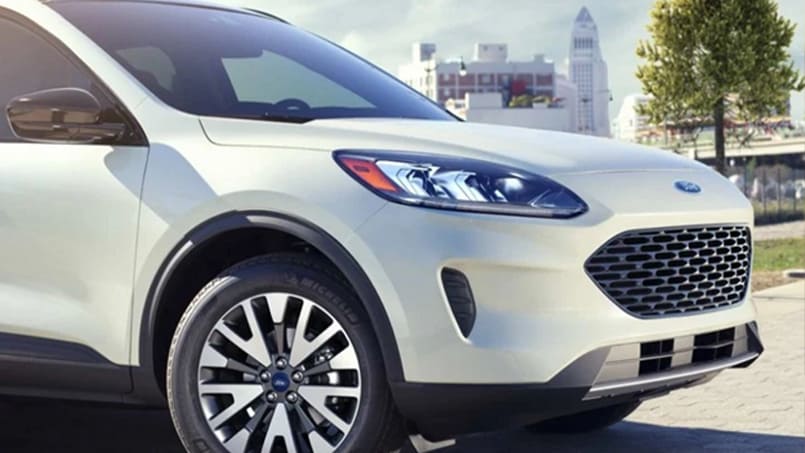- Come View Our Pre-Owned Vehicles Selection Today
- Shop Here

Ford hybrid and electric vehicles (EV) feature advanced fuel-saving technology. Whether they’re operating in electric mode, gas mode, or a combination of both, these vehicles both optimize efficiency. Plug-in hybrid vehicles (PHEV) can be recharged in under three hours using a 240-volt outlet.
Ford Hybrid Vehicles
A vehicle is a hybrid if it’s 100% gasoline-fueled but doesn’t rely solely on its gasoline engine for propulsion. Hybrids also have electric motors that sometimes power the car, deferring the use of the gasoline engine to save fuel. At times, both systems work together for added power. Electric motors operate as generators when pressing the brake, and the energy regenerated during braking is stored in a small battery for immediate use the next time you accelerate from rest. A PHEV is a gasoline-powered hybrid with a much larger battery and a means to recharge it using an external power source. Examples include the 2022 Maverick pickup, the 2021 Escape Hybrid or Plug-In Hybrid, and the 2020 Fusion Plug-In Hybrid or Explorer Limited Hybrid.
Ford Electric Vehicles
An EV has a battery that is large enough and an electric motor that is powerful enough to deliver ample range and performance without the need to include an engine or a gas tank.The 2021 Mustang Mach-E is an all-electric vehicle, and the California RT 1 model, for example, has a targeted EPA-estimated range of 300 miles. The all-new, all-electric 2022 Ford F-150 Lightning is the first ever F-Series truck that’s gas free and offers more connected technology, a superior driving experience, and trusted “Built Ford Tough” capability. The 2022 E-Transit van, which comes in three lengths and roof heights without compromising cargo space, is 100% electric with access to the largest public charging network in North America.
Hybrid vs. Electric Vehicles
Hybrid vehicles don’t need to be charged and the gas propulsion means you can go anywhere without worrying about range. They’re more inexpensive than all-electric vehicles and can easily be your only car. Fully electric cars, on the other hand, are entirely powered by batteries that must be recharged regularly. Most EV owners charge their vehicles at home overnight, so they are best for homeowners. EVs have zero tailpipe emissions, no need to stop for gas, and its per-mile electricity costs less than gasoline. They boast smooth, immediate, and quiet acceleration with no shifting as well as little upkeep aside from tires and windshield wipers.
Learn more about Ford’s hybrid and electric vehicles by calling Essential Ford at (772) 212-9954.




